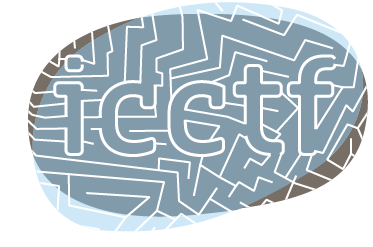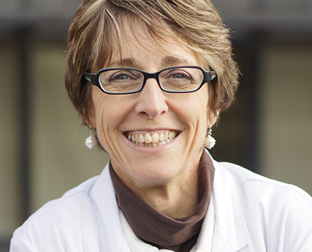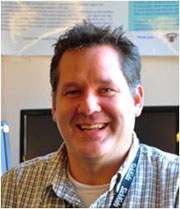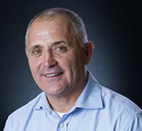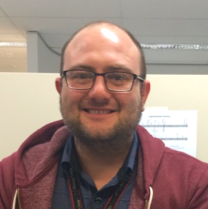2018 International Cognition and Cancer Task Force Conference
Thank you to all our presenters and delegates for making the 2018 ICCTF Cognition and Cancer Conference in Sydney, Australia such a fantastic and successful event. We are grateful to those delegates who completed the conference evaluation survey which was distributed recently, your feedback will help the conference convenors with organisation of the next meeting.
CONFERENCE PROGRAM BOOK
Click here for the full conference program book
Dates:
9-10th April 2018 Cognition and Cancer Conference
9th April: 6.30pm-10.30pm Conference Dinner @ Studio Sydney Tower (see below for further details)
11th April: 8.00am-11.00am optional Imaging and Pre-clinical workshops (running concurrently - see below for further information)
11th April: 1.00pm-4.00pm optional “meet the experts” networking buffet lunch cruise on beautiful Sydney Harbour. www.captaincook.com.au
Venue:
Rydge’s World Square, 389 Pitt Street NSW 2000, Sydney ( https://www.rydges.com/accommodation/sydney-nsw/world-square-sydney-cbd/ )
You can contact the local organization by sending an email to: ccs.icctf@sydney.edu.au
THE ABSTRACT REVIEW PROCESS HAS NOW BEEN COMPLETED.
All submitting authors should have been notified of the outcome, please contact us at ccs.icctf@sydney.edu.au if you haven’t received a notification e-mail. We have a very strong number of abstracts that have been selected for oral presentation at the conference and poster presentations which will be displayed over two sessions on Monday and Tuesday, 9th and 10th April.
The ICCTF steering committee and local conference convenors would like to sincerely thank our panel of reviewers for their time, effort and expertise.
Presentation Guidelines
Oral presentations
Twenty minutes in total: Presentations should be 15 minutes with 5 minutes for discussion.
Poster presentations
Dimensions (maximum size): Height 147cm by width 97cm.
Please note the following important deadlines:
Abstract submission deadline: December 1st, 2017
Notification of acceptance of abstracts: end of January 2018
Early bird registration deadline: February 18th 2018
PROGRAM
Click here for the conference program
REGISTRATION FOR THE CONFERENCE IS CLOSED.
Conference dinner: 110 AUD
All conference attendees who register for the dinner by Friday, March 16th will go in the draw for a top shelf bottle of Australian wine, to be awarded at the dinner.
'Meet the Experts' Networking Cruise: 100 AUD
Click here for an overview of the conference social / networking events
Workshops
There will be two workshops - Imaging and Preclinical - running concurrently on Wednesday April 11th. Attendance is included in the conference registration fee. The workshops will run from 8.00-11.00am and are being held at the University of Sydney, which is easily accessible from the city by public transport. Places are limited, please register to guarantee a spot.
IMAGING WORKSHOP OUTLINE
Organising Committee Members: Michiel de Ruiter, Sabine Deprez, Brenna McDonald, Andrew Saykin, Dan Silverman
Part I: 1. Overview of studies since the 2016 ICCTF meeting; 2. Data pooling project; 3. ICCTF Neuroimaging Group Guidelines paper; 4. Cutting-edge subjects ripe for multi-centre collaboration ( big data issues, multi-omics, genetics, and informatics / prediction and diagnosis of cognitive decline assisted by neuroimaging / image-guided selection and monitoring of therapy).
Part II: 1. How to move the field forward? Brain-storming sessions in small groups; 2. Summaries by each group; 3. The imminent future – where do we go from here? Concrete ideas for grant proposals.
PRECLINICAL WORKSHOP OUTLINE
Organising Committee Members: Hélène Castel, Ian Johnston, Adam Walker
Part I: 1. Overview of studies since last meeting; 2. Review of the recommendations proposed since the 2016 ICCTF Amsterdam Animal Research Working Group (Guidelines paper). Issues to discuss: better animal models of CT-ICI; reducing duplication and redundancies; increasing replicability and comparison by standardising methods, doses, dosing schedules / cognitive and emotional tests; experience sharing and reporting of unsuccessful studies; translational studies from clinic to pre-clinic and vise et versa.
Part II: 1. Presentation of the different future directions: how to move the field forward?; developing complex and better animal models; improving knowledge between cognitive domains and neurobiological mechanisms; testing of strategies of intervention (pharmacology and/or behavioural); finding international grants, from bench to bed and bed to bench.
INVITED SPEAKERS
Dr Florence Joly (Centre Francois Baclesse Comprehensive Cancer Centre, France): Immunotherapy agents and cognition
Professor Florence Joly is a medical oncologist in the Francois Baclesse Comprehensive Cancer Centre in Caen, Normandy, France. She did her training at the Universities of Grenoble and Caen, in France and undertook her fellowship in 2003 at the Princess Margaret Hospital in Toronto with Prof Ian Tannock.
Prof Joly is the head of the Clinical Research Department of the François Baclesse Centre and Vice President of both the French Research Group on Supportive Care (AFSOS-Unicancer) and the GINECO group.
She is involved in care and clinical research among patients with gynaecology and urinary cancers and is author and/or co-author of 186 indexed publications in the field of oncology.
Prof Joly is a member of the research Unit INSERM U-1086, Anticipe (Lower Normandy University), and for 15 years she has been developing a large multidisciplinary research program on quality of life with two main topics – long term quality of life among survivors and impact of cancer treatments on cognition. She heads the Ligue labelled French cancer platform dedicated to Cancer and Cognition, supported by the North-West Canceropole (www.cancerandcognition.com). The platform includes multidisciplinary researchers and the group has developed studies from bench to bedside on chemotherapy in the elderly, targeted therapies, and a new generation of hormone-therapy.
Dr Donald Mabbott (The Hospital for Sick Children, Canada): Cognitive and neuroimaging outcomes in cognitive/brain rehabilitation approaches
Dr Donald Mabbott is a psychologist with the Paediatric Brain Tumour Program in the Division of Haematology/Oncology at The Hospital for Sick Children, a senior scientist in the Research Institute at The Hospital for Sick Children, and an associate professor in the Department of Psychology at the University of Toronto. He provides clinical neuropsychology services to children with brain tumours and their families and has a research program in developmental neuropsychology.
Dr Mabbott’s research uses innovative brain imaging techniques (i.e. Diffusion Tensor Magnetic Resonance Imaging; Magnetoencephalography) and psychological tests to study the impact of brain injury on how the brain grows and develops in childhood. Specifically, he examines the impact of treatment for paediatric brain tumours on the structure and function of the brain.
The overall goal of his research is to reduce the burden of brain tumours and their treatment to improve the quality of life for children. His work has been instrumental in documenting the thinking and learning difficulties children treated for brain tumours experience and the underlying damage to brain structure and function that cause these problems.
Dr Paul Maruff (University of Melbourne, Australia): The use of new technologies to assess cognition in oncology: opportunities and challenges
Professor Paul Maruff is one of the founders of Cogstate. He is a neuropsychologist with expertise in the identification and measurement of subtle behavioural and cognitive dysfunction. Prof Maruff’s research integrates conventional and computerized neuropsychological testing with cognitive neuroscientific methods to guide decision making in drug development and in clinical medicine.
He has worked extensively on method to identify subtle neurocognitive impairment, and to assess the efficacy of pharmacological treatment, in Alzheimer’s disease, mild cognitive impairment and the HIV dementia complex. He has extended this approach to identify cognitive dysfunction, and monitor treatment efficacy in psychiatric diseases such as schizophrenia, obsessive-compulsive disorder and depression in adults, and attention deficit disorder, developmental dyspraxia and substance abuse in children.
Prof Maruff remains an active researcher. He is appointed Professor at the Florey Institute for Neuroscience and Mental Health. He is currently clinical co-chair of the Australian Imaging Biomakers and Lifestyle (AIBL) study. He has published over 250 research articles in international peer-reviewed scientific journals, and has co-authored 10 book chapters.
Dr Adam Walker (Monash University, Australia): The influence of cancer on cognition in pre-clinical models
Dr Adam Walker’s research program investigates the role of neuroinflammation in psychiatric illness and cognitive function. He completed his PhD at the University of Newcastle and undertook a successful postdoctoral fellowship at the prestigious MD Anderson Cancer Center, USA. Now located at Monash Institute of Pharmaceutical Sciences, Dr Walker is invested in novel drug design and repurposing safe available anti-inflammatories and other drugs to combat cancer-associated cognitive impairment.
As a National Breast Cancer Foundation research fellow, Dr Walker is applying his expertise in neuroinflammation to identify novel mechanisms and treatments for chronic central nervous system (CNS)-related side-effects of cancer and cancer treatment. These mechanisms include neuroinflammation, the IDO-kynurenine pathway and blood-to-brain transport mechanisms. To accomplish this he uses syngenic, orthotopic mouse models of breast cancer metastasis to explore bidirectional communication between the brain and tumour. He has pioneered the repurposing of novel drugs and supplements (aspirin, ketamine and leucine) to treat inflammation and cancer-associated cognitive impairment and depression.
Dr Florence Joly Dr Donald Mabbott Dr Paul Maruff Dr Adam Walker
CONFERENCE ACCOMMODATION OPTIONS
We have organized a reduced rate for 30 rooms at the conference venue, Rydges World Square. This will be on a “first in / first served basis” and needs to be booked a minimum of one month prior to the conference to ensure you get this rate. Rate: AUD$209/night for a deluxe king/twin room.
To access the special accommodation rate, contact the Rydges World Square reservation team via phone (+61 2 8268 1888) or email (reservations_worldsquare@evt.com) and quote BLOCK ID : 2988172 or BLOCK NAME: University of Sydney – Allotment. Credit card details are required to be provided for guarantee purposes at the time of booking.
Alternatively, Sydney offers a range of accommodation close to the city, including Darling Harbour and Circular Quay ranging from backpacker to 5-star hotels - as well as airbnb.
CONFERENCE DINNER
Monday 9th of April – STUDIO, Sydney Tower (6.30-10.30pm).
STUDIO is Sydney’s highest private event space and bar, perched 305 metres above Sydney’s CBD and located in Sydney Tower. The breath-taking 220 degree views over Sydney span across the Harbour, Sydney Harbour Bridge and the headlands, giving the venue a WOW factor that is unique. The conference dinner promises to be a truly memorable event with incredible views, great food and service and a wonderful opportunity to socialise with colleagues in a relaxed atmosphere. We would encourage you to book early for the dinner as places are limited. If you are travelling with a partner they are welcome to attend.
All conference attendees who register for the dinner by Friday, March 16th will go in the draw for a top shelf bottle of Australian wine, to be awarded at the dinner.
https://www.studiosydneytower.com.au/
http://s3.pixelcase.com/venues/bar/tour.html (interactive tour)
VISITING SYDNEY
Sydney is Australia's largest, most cosmopolitan and exciting city, a melting pot of different cultures, backgrounds and influences.
The city boasts majestic beaches, breath-taking natural wonders and iconic landmarks. You will also find a dynamic dining scene; a love of culture, the arts and sport; an exuberant spirit and a near-perfect climate.
For more information on getting the most out of your time in Sydney, visit: sydneyonbusiness.com.au
For a taste of Sydney and some inspiration for your visit, Qantas has produced this excellent piece: 'How to See the Best of Sydney in 72 Hours'
SPONSORSHIP
We would like to acknowledge the generous support of the Cancer Research Network (CRN), University of Sydney. The CRN, established in 2006, is a cross-Faculty initiative of the University. The CRN links cancer researchers in the University and its teaching hospitals and affiliated research institutes and institutions to build high quality cancer research capacity and achieve international cancer research excellence in areas of strength. For further information please visit the CRN's website: http://sydney.edu.au/cancer-research/
